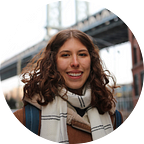Privileged Immigrant
Culture categorizes people into buckets: Hispanic, American, South African, Gay. I didn’t use to think too much about my culture, especially since everyone around me identified the same way. In my private, high-class Honduran high school, the needle in the hay would often be the 1st generation Chinese-Honduran students, the Afro-Honduran students that moved to the city, or the low-income students on scholarships. These kids were different from us “Honduran Elite”, and as a stuck up kid who didn’t grow wealthy but was more privilaged than 80% of the country, I wouldn’t think too much about the bullying these other kids experienced for being “different”. El chino, el negro, el indio. I would hear these nicknames all the time, not batting an eye to how discriminatory and racist these comments were.
When I moved to the United States at age 17, my notion of culture changed in a span of seconds. Suddenly, everyone identified as something. Everyone had slapped a label on themselves in an effort to find their people. I was confused and taken aback; until this point, I had made friends by talking to others that looked friendly. I never thought about race, nationality, or sexuality when picking my friends. Being a foreigner in the land of opportunity meant that I was also placed in a bucket even when I didn’t want to fit in one. I was actively being discriminated at. I didn’t fit in with the latinos for being “too americanized”, the Chinese maintained their distance, and Americans grew tired of me for not getting their cultural references. I struggled to make friends, to say the least, and so I decided that if I was going to live in America, I had to think and act like an American.
Diaware’s Song of the Griot explores the intersectionality of mestizo culture or “in-between” culture and its effects on the individual. I am an immigrant in this country, and have found that I too belong in the “in-between”. I have now lived in the U.S. for 6 years, some of which have been the most formative in my life. I still don’t get all American references, and I’ve found myself struggling to keep up conversations in Spanish with my friends and family. To Americans, I am just a friendly foreigner, and to my people in Honduras, I’m a Gringa. Simple things such as who to root for in the Olympics, or what kind of food I like have prompted unwanted questions about who I am.
I have never felt more conflicted about my identity. In design, I’ve faced disatisfaction by clients for not appealing enough to American consumers. I have also been asked to make designs more “ethnic” or make Honduran indigenous people a trend. These comments bother me, but I can’t help but think that I am still in a very priviledged position. I am white, I go to a prestigious school, and my English is good enough. Many other black, muslim, and gay designers face so much more prejudice and distrust in the workplace. Even in recent efforts to make the workplace diverse, POCs are made an amusing new trend to appeal to the masses. I can’t relate to their experiences, but the feeling of alienation and isolation holds true to me as a privileged immigrant.
